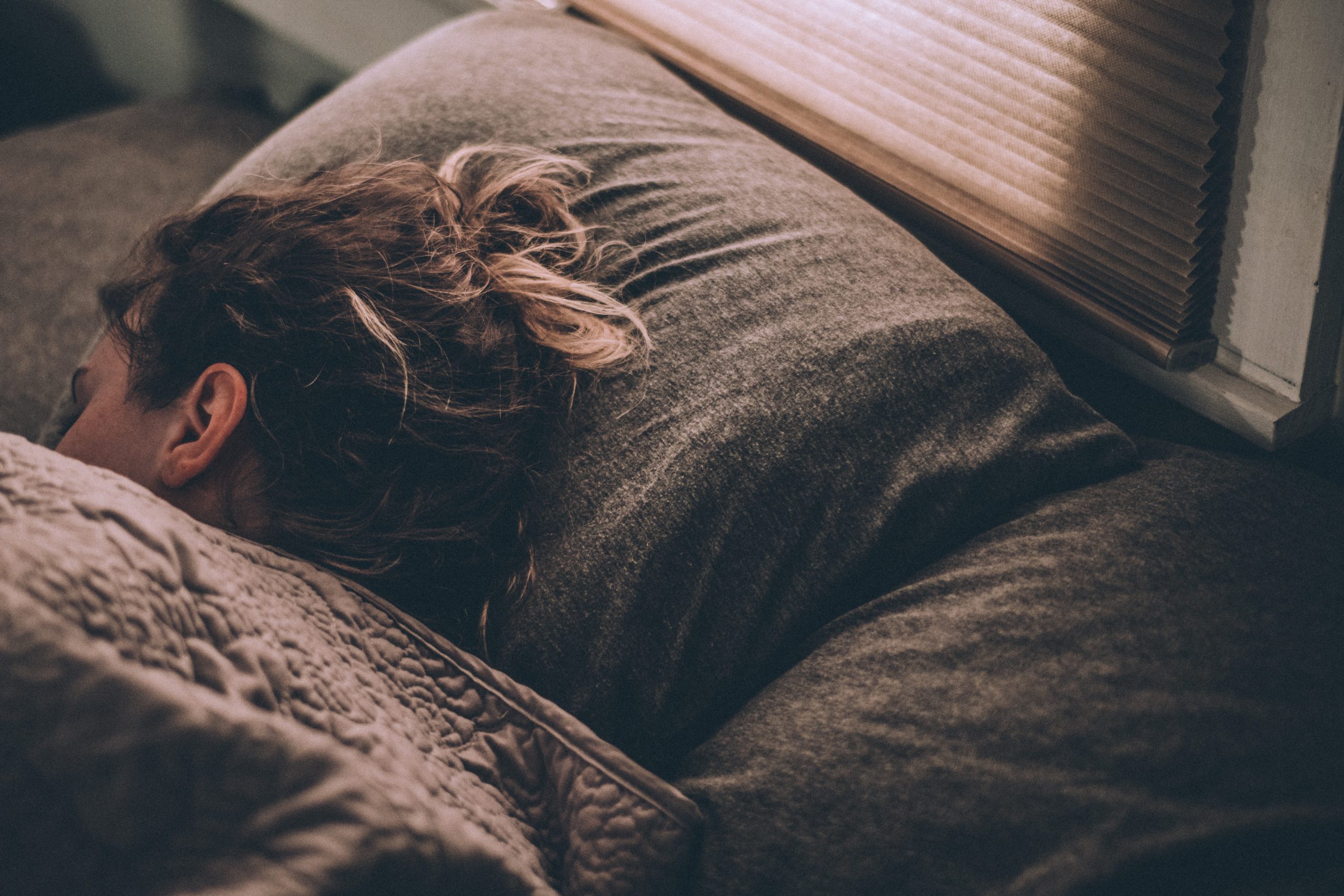Anxiety and sleep go hand in hand, and not in a good way. When we don’t sleep well or get enough sleep, we are negatively impacted in many ways throughout our day. Daily exercise, regular meditation/mindfulness practice, and great sleep are three cornerstones of treatment for anxiety that I suggest for my clients. Sleep is by far the most important.
8 top tips for breaking the sleep and anxiety connection
# 1 — Turn off All Screens 90 Minutes Before BedTime
You may have heard researchers and writers discuss the importance of a sleep routine. Part of that routine always includes turning off screens. I recommend turning off all screens in your home 90 minutes before bedtime. The blue light on your devices sends messages to your brain to stay up and to stay alert. It also can provide you with distracting news and exciting stimuli. The goal is to move your brain towards restful sleep rather than stimulate your mind and keep you up.
#2 — Only Get Into Bed When Ready to Go to Sleep
Associating your bed with sleep is an easy way to improve the quality of your sleep. Do not get into bed until you are ready to fall asleep. Of course, your bed might be used for other, well, activities. You can associate it with that too!
#3 — No TV in Bed
Do not watch TV in bed. I know! We like to watch Star Trek in bed. It’s awesome. But, it doesn’t lend itself to very good sleep. Your mind needs to associate your bed with sleep and not with TV shows. Watching TV in bed has been shown to keep people up and limit their amount of restful, healthy sleep.
#4 — Stop Eating and Drinking 2 Hours Before Bed
Stop eating and drinking 2 hours before bed to help your digestive system relax. Too much to eat or drink before bed can keep your body in an active state and make it difficult to sleep.
Does magnesium help you sleep? This is a question we get from people quite often and is the focus of much research. Magnesium is a vital mineral that we do not get enough of in our everyday life. Taking magnesium (if you are not already) can help relax the nervous system before bed. Check with your primary physician first to make sure that this mineral is safe for you. Most people can safely take magnesium daily.
#5 — Write Things Down
One hour before bed, write down everything that is on your mind. And I mean long hand, actually writing, not typing into a device, or using voice to text. Write down all of the things that you are worried about, and all of the tasks that you have for the following day. Let everything flow out of you and do not judge yourself. Write in a stream of consciousness style so that you can capture every single thought running through your head.
#6 — Low Lights and Good Scents
If you can dim the lights an hour before bed and add some essential oils to a diffuser in your home, you can set the mood for sleep. Creating a restful environment is important when it comes to facilitating sleep.
#7 — Follow a Sleep Schedule
It can be difficult to go to bed and wake up at the same time every day, especially on the weekends. However, it is one of the most important parts of keeping and maintaining a sleep schedule. A sleep schedule helps to train your body so that it knows when to let go and when to fall asleep. Part of a relaxing and invigorating sleep experience is getting your body ready to sleep. Predictability helps.
#8 — Get Your Heart Rate Up
I tell all of my clients that you need to get your heart rate up into the aerobic zone for at least 20-30 minutes most days of the week. This has a dramatic impact on your body’s ability to rest later on.
Many people who struggle with sleep deprivation also struggle with anxiety, depression, and relationship issues. If you experience anxiety, depression, or problems getting along with your family or partner on a regular basis in your personal life, somatic therapy in pasadena, ca, couples therapy in Pasadena, CA, and anxiety treatment in pasadena, ca can help you get deeper sleep. Schedule a constulation with us today to find out more.










